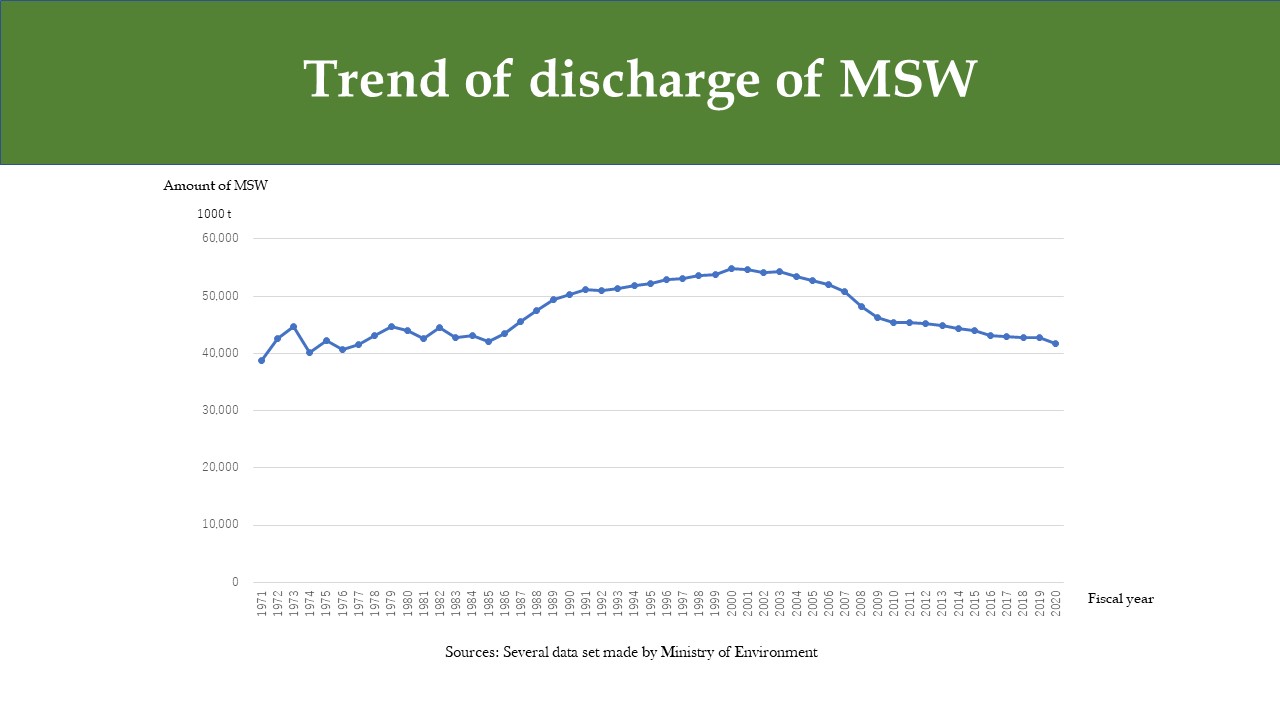Trend of generation of municipal solid waste (MSW) in Japan
10/03 2023
Author: Eiji Hosoda
This is, however, easier said than done, since producers were not given any motivation for producing commodities which created less waste at the post-consumption stage without a proper policy guidance or regulation. Neither had consumers any incentive to purchase commodities which created less waste after consumption if it were not for a proper encouragement policy, say, by municipalities.
This is why the amount of MSW did not decrease for such a long time even though recycling had been promoted. The figure shows the trend of generation of MSW. Although the amount of MSW increased from 1971 through to 2001 with some exceptional years, it began to decrease after that, and is decreasing constantly up to now. Japan has succeeded in reduction of generation of MSW these last twenty years.

Notice that Japan implemented the three R’s policy (reduce, reuse, recycle) in the 1990s, so that the Japanese have, whether they are producers or consumers, been encouraged for promoting the 3 R’s. Furthermore, the government introduced some acts for implementing the 3R’s policy; the basic act of establishing a sound material-cycle society, the act for promoting effective utilization of resources, and the acts for recycling individual items such as containers/packages, electric appliances, automobiles and so on. All these acts were introduced around the year 2000.
Apparently, it is not a coincidence that the amount of MSW began to decrease around the time when these acts were introduced. One could not deny the effects of not only those acts themselves but the social atmosphere behind the scene of the policy implementation for reducing the amount of MSW. If so, we may possibly say that Japan has taken a step toward a circular economy.
